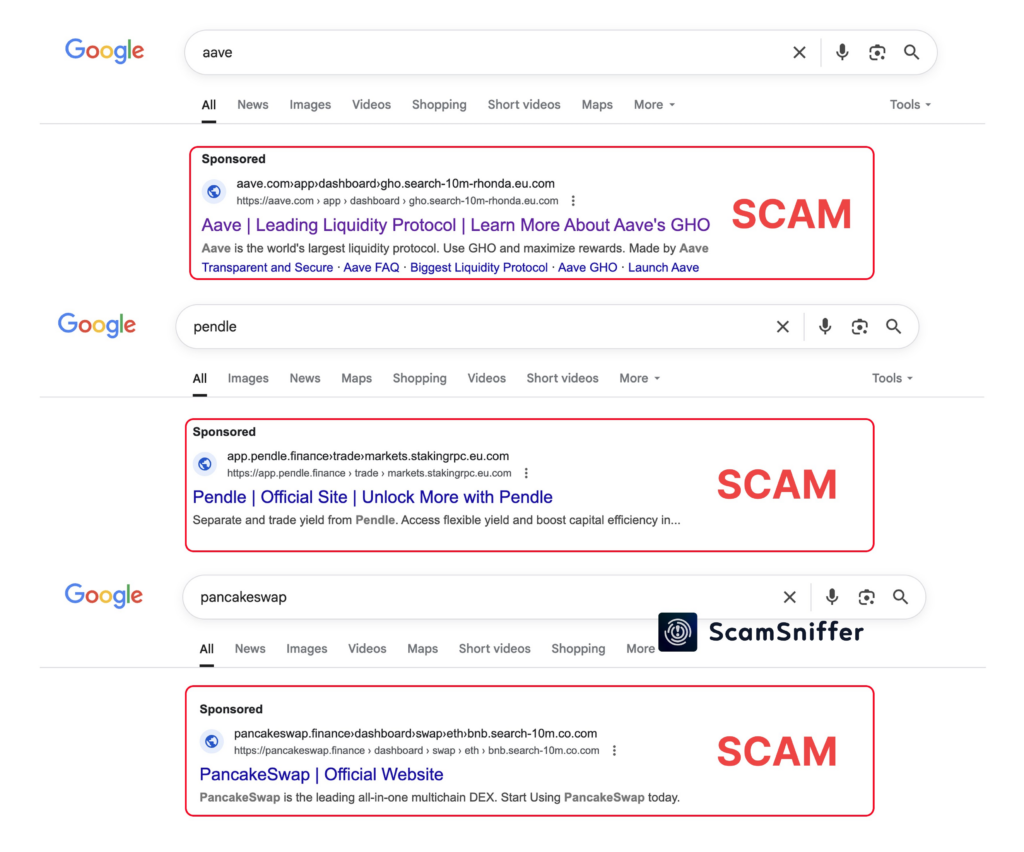Crypto User Drained of $1.2M in Uniswap Phishing Scam—Google Ads Still Hosting Traps
Another day, another DeFi heist—only this time, Big Tech’s ad platform served as the getaway car. A slick fake Uniswap site, boosted by Google Ads, just siphoned $1.2 million from a single victim. The kicker? This isn’t even a sophisticated attack—just the oldest trick in the book (phishing) with a Web3 makeover.
How the scam works
Fraudsters bid on high-value crypto keywords, pushing malicious links to the top of search results. Click the ad, land on a flawless Uniswap clone, connect your wallet… and watch your life savings evaporate. No smart contract exploits needed—just human error turbocharged by Silicon Valley’s pay-to-play ad model.
The irony is delicious
Google’s algorithm—the same one that demonetizes ‘controversial’ content—somehow greenlights fake DEX ads. Meanwhile, legitimate crypto projects struggle to run compliant campaigns. Priorities, right?
Wake-up call
Bookmark your DeFi platforms. Double-check URLs. Assume every ad is guilty until proven innocent. And maybe—just maybe—ask why a $1.7 trillion company can’t stop scams it profits from. But hey, at least Wall Street’s middlemen are sweating—turns out, you don’t need decentralized finance to get robbed blind.
Phishing sites rampant on Google Ads
While Scam Sniffer did not confirm the domain used in the attack, phishing sites like these are rampant online. Notably, attackers use Punycode URLs, which use the Cyrillic alphabet to make the URL appear almost identical to a legitimate one.
For the scam to work, users don’t have to share their private wallet keys with the attackers. Instead, just signing a malicious smart contract is enough to authorize the attacker to gain access to all the assets on a user’s wallet.
Scammers then serve these URLs through direct messages and Google Ads. Notably, these ads appear as top results on Google for several major DeFi platforms. Google also profits from these types of scams, collecting revenue every time a user clicks on a malicious site.

The ubiquity of these scam sites on Google Ads suggests that the tech giant does not do adequate vetting when it comes to its advertisers.

